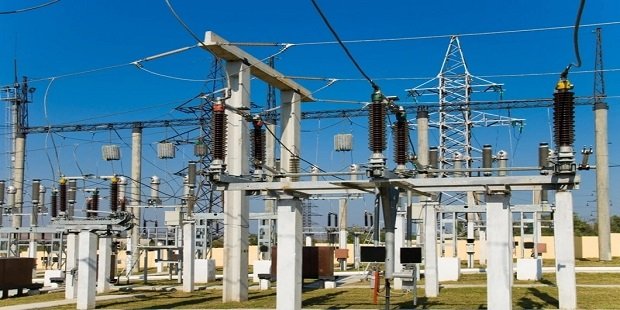The Federal Executive Council (FEC) has given the green light for contracts totaling €161 million to upgrade Nigeria’s power infrastructure as part of the Presidential Power Initiative (PPI). This critical investment is aimed at strengthening the national electricity grid, reducing power outages, and enhancing transmission capacity across the country.
The approval marks a significant milestone in Nigeria’s long-standing efforts to revamp its power sector and tackle the electricity deficit that has hampered industrial growth and economic development for decades. The project will involve the modernization of 14 existing substations and the construction of 21 new substations to expand the country’s transmission network.
Project Scope and Key Deliverables
The contract, awarded to a consortium of engineering, procurement, and construction (EPC) contractors, includes:
- Upgrading 14 existing power substations – Increasing their capacity to handle higher loads, improving efficiency, and reducing transmission losses.
- Constructing 21 new substations – Expanding the national grid to accommodate rising electricity demand and strengthen supply in underserved regions.
- Deploying state-of-the-art technology – Implementing modern power systems that enhance grid stability, reduce voltage fluctuations, and improve load management.
- Enhancing integration with renewable energy sources – Facilitating the connection of solar, wind, and hydroelectric power to diversify Nigeria’s energy mix.
Minister of Power, Adebayo Adelabu, described the approval as a “transformative step toward achieving stable and reliable electricity supply for Nigerians.” He emphasized that upgrading Nigeria’s transmission infrastructure is critical to resolving the bottlenecks that frequently disrupt power distribution.
“This investment in our power substations will greatly enhance our ability to deliver electricity efficiently and consistently. We are working toward a power sector that supports industrialization, economic expansion, and improved quality of life for all Nigerians,” he said.
Strategic Importance of the Power Infrastructure Upgrade
Nigeria has long struggled with inadequate electricity supply, a challenge that affects businesses, industries, and households alike. Despite an installed generation capacity of over 12,000 megawatts (MW), the actual power delivered to consumers often falls below 4,500 MW due to transmission and distribution inefficiencies. The substation upgrades will help bridge this gap by:
- Boosting the capacity of the transmission network, enabling it to transport more electricity from generation plants to distribution companies.
- Reducing technical losses and voltage fluctuations, ensuring that consumers receive stable and reliable power.
- Improving load management and grid resilience, reducing the frequency of system collapses and outages.
- Strengthening electricity supply to industrial zones and commercial hubs, fostering economic growth.
By expanding the grid’s capacity and modernizing infrastructure, the initiative aligns with the government’s goal to achieve 25,000 MW of operational power capacity by 2030, a target set under the Nigeria Electricity Roadmap.
Implementation, Funding, and Execution Timeline
The €161 million investment will be funded through a combination of:
- Federal government budget allocations
- International financing partnerships
- Private sector contributions through Public-Private Partnerships (PPPs)
The project will be executed in phases, with immediate priority given to critical substations in urban centers experiencing severe power shortages. The timeline for implementation includes:
- 2025: Design, procurement, and preparatory engineering work.
- 2026 – 2027: Construction and installation of new substations, upgrades to existing infrastructure, and integration into the national grid.
- 2027 onward: Full operational deployment, expected to enhance electricity supply nationwide.
The government has assured stakeholders that strict monitoring and quality control measures will be in place to prevent project delays and ensure compliance with industry standards.
Economic and Social Impact of the Project
The substation upgrade initiative is expected to deliver wide-ranging economic and social benefits, including:
1. Job Creation and Local Content Development
The project will generate thousands of direct and indirect jobs, particularly in engineering, construction, and technical services. Additionally, local contractors and suppliers will play a key role in delivering materials and providing support services, in line with Nigeria’s local content policies.
2. Improved Business and Industrial Productivity
A more stable power supply will reduce reliance on expensive diesel generators, cutting operational costs for businesses and increasing profitability. This is expected to stimulate industrialization and attract foreign investment into Nigeria’s economy.
3. Enhanced Quality of Life for Nigerians
With a more reliable electricity supply, households will benefit from improved access to essential services such as healthcare, education, and digital connectivity. The initiative will also support rural electrification efforts, bringing electricity to underserved communities.
4. Support for Renewable Energy Integration
As Nigeria looks to reduce carbon emissions and transition toward cleaner energy sources, the new substations will be designed to seamlessly integrate renewable energy into the national grid. This will help meet the country’s climate commitments under the Paris Agreement while ensuring energy security.
Industry Reactions and Expert Opinions
Energy sector analysts have welcomed the FEC’s decision, highlighting the urgent need for transmission infrastructure upgrades to support Nigeria’s growing energy demand.
Dr. Emeka Okonkwo, an energy consultant, stated:
“This investment is a step in the right direction. The power sector has suffered from a weak transmission network for years. Without significant infrastructure upgrades like this, even if we generate more electricity, we won’t be able to deliver it effectively to consumers. This project will help close that gap.”
Conclusion
The Federal Executive Council’s approval of €161 million for power substation upgrades marks a major milestone in Nigeria’s electricity reform efforts. By modernizing and expanding the national grid, the initiative is expected to enhance power reliability, reduce transmission losses, and support industrial growth.
As implementation begins, stakeholders, investors, and consumers alike will be watching closely, hoping that this long-awaited intervention will bring lasting improvements to Nigeria’s electricity supply.







Leave feedback about this